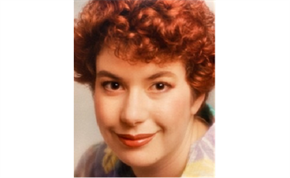
To mark Disability History Month, Zoe May shares her story about her diagnosis of MS and what it means to her.
I have secondary Multiple Sclerosis (MS), a long-term condition which can get progressively worse followed by periods of remission and is a protected equality condition under the Disability Discrimination Act.
MS, as with many long-term conditions, affects each individual differently. I was diagnosed nearly four years ago following a couple of falls and what I though was Sciatica as I had numbness in one leg. My first actual episode was back in 2004 when driving home from work I couldn’t read the vehicle number plate in front of me.
A quick visit to my optician (who I now see annually) led to a next day emergency referral to Addenbrookes Eye Clinic, where I was discharged after investigations as I had no other symptoms. I carried on working throughout the few weeks for my eyesight to recover.
Exactly a year later I suffered total loss of sight in my other eye. Another emergency eye clinic visit and I was given steroids to reduce the swelling of the optic nerve. Whilst I could have continued working, I couldn’t see the traffic joining the A1 and felt unsafe to other road users. Plus using only one eye when you’re used to two is unbelievably tiring (and boring!!). Again, back to work after a couple of weeks and I was sent for investigations into MS but discharged as I passed all the tests with flying colours (Yippee!).
Four years ago, I fell over at work spraining my ankle. Initially I put this down to walking quickly down a hospital corridor in high heels. (Health & Safety review found no faults in the flooring.) Luckily it was the Easter Break, so no sick leave required.
Then leaving work one evening a few weeks later, I fell over again, laptop and bags going flying. I had tripped on a very slightly raised paving stone. I knew this was not normal, so off to the GP I went, where I was referred to neurology and yes, a formal diagnosis of MS.
At the time of my diagnosis, I could still hike and take long dog walks. Now I can only manage a mile at a time, up to 5 miles a day, just not every day. Just don’t ask me to run! Some days, I suffer from fatigue, others I have my usual high energy. As I cannot grip with my feet, I have to wear full shoes or those with an ankle strap.
I still have a tendency to trip over due to poor balance and muscle spasticity. When taking the stairs, I ensure I’m next to the handrail. In total, I’ve only had about 2 months off work due to MS, mostly due to leg pain and stress (MS is affected by extremes of heat and cold – so I’ve had air conditioning installed at home).
Since joining EEAST five months ago, I work permanently from home with a hot desk available at the local office. At my interview I was open about my MS, and the few special requirements discussed with Occupational Health. No daily commute helps any potential fatigue (more than just tiredness – caffeine and chocolate don’t work as pick-me ups!), a curved keyboard and large screen, an office close to toilet facilities (yep, one of the downsides of MS is these muscles are affected due to blocked nerve signals), and time off for hospital and specialist MS nurse/physiotherapy appointments).
My role allows me to flex my day to some degree (MS Teams meetings permitting), so if I get tired, I can take a few extra breaks. In this way I am no different to you – a 10-minute break from the PC every hour, to stretch, get a drink etc.
In March 2022 I will start the Elizabeth Garrett Anderson NHS Leadership course, the first time since my diagnosis, that I will study for 15 hours a week and continue to work full time. I obtained a full bursary for this course, partially because of my disability.
My line mangers are very understanding, checking in with me regularly around my MS needs and reminding me I can stay overnight if I need to travel to sites across EEAST. My driving licence is now renewed every 3 years, and I can no longer drive certain vehicles (not that I ever did) such as mini-buses or ambulances. Two hours driving is the maximum I can do at any one time, so when I need to visit offices across EEAST, I have been able to obtain lifts from colleagues, or arrange to meet at a mutually convenient location.
Just like EEAST is going through changes, to Abandon poor practices, Adapt what we do and Adopt new ways of working, I’ve had to do the same due to MS: Abandon (high heeled shoes, hiking) Adapt (max of 1/2 hour housework at a time, found a rewarding role without a daily commute), Adopt new practices (taking up Tai Chi to keep fit and improve balance).
My disability may be hidden, but I am not!
Zoë May, Head of Business Relationships
Published 27th November 2021